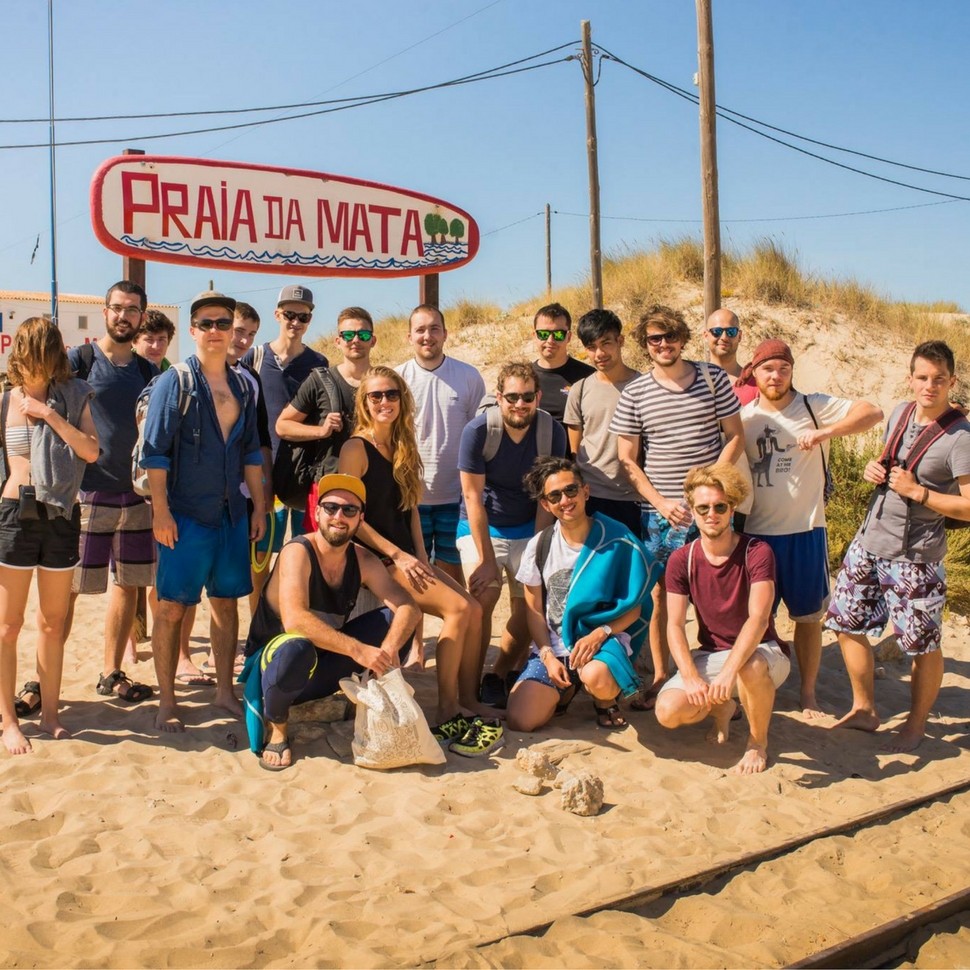In 2013, Allwork interviewed the founders of The Surf Office to learn more about coworking in paradise. Back then the concept of combining coworking with travel – much less coworking and surfing – was in its infancy, and The Surf Office was quite literally riding the wave of an emerging digital nomad trend, fuelled by growing numbers of freelancers and mobile entrepreneurs.
Their timing was impeccable, and by 2015, the company had expanded from a single coworking space in the Canary Islands to three locations across Europe.
Since we last spoke with The Surf Office, however, things have changed.
“We switched Surf Office from hosting individuals to companies and, if I’m honest, I wasn’t sure if the leap was going to work at first,” said Peter Fabor, co-founder of The Surf Office.
“It was a natural transition; we began to get more company bookings rather than individual bookings, and it felt like we were trying to cater to too many different audiences at once.”
“We decided to focus on just one area and perfect that first, and we felt we could add more value by helping companies with their retreats.”
Coworking has become “diluted”
However, moving away from their freelancing roots was no easy decision. If it works, why change it?
“The coworking space industry has become very diluted,” said Peter, “and although we’ve built up a good brand in this area, we identified an interesting niche in business travel and company retreats that we decided we wanted to disrupt.
At first, we had doubts because we weren’t sure if the market was too small, and also if we would be able to switch the perception of our brand from hosting individuals to companies.
We began gaining a lot more traction in this area, so it made sense to make the shift. It took a few months, but after communicating our renewed focus clearly we began to attract more clients, larger groups, and companies outside of tech.”

Peter and the team now utilise five company retreat locations in Europe and count a growing roster of high-profile guests including WordPress and Shopify.
“We feel like we are adding real value to companies by facilitating these retreats, that often result in the sparking of huge ideas or changes in direction,” he said. “Also, we love it!”
Change in workspace management
 Another Major change in their business relates to how they manage their workspaces.
Another Major change in their business relates to how they manage their workspaces.
Peter admits to being “too obsessed with new locations” in the early days of The Surf Office. Along with the change in business model, the team decided to stop operating their own spaces and instead build a network of partners to provide workspace and accommodation.
This, Peter explains, gives them the flexibility to host retreats of different sizes and to accommodate many different requirements and expectations. Plus, it allows companies to have exclusive access to the space for any length of duration.
“Our model is a win for landlords too, as it helps them to fill unused rooms in low-mid season.”
Company retreats becoming standard
Despite their initial trepidation, Peter reports that “demand is definitely increasing” as more companies realise the value and potential of company retreats.
“We believe that we will begin to see more companies incorporating company retreats as part of their standard, yearly routine and strategy.”
As for the future, he is keen to expand their offering “to have a wide portfolio that can cater to the needs of a majority of clients.”

Yet Peter still hasn’t lost sight of the people who originally made The Surf Office happen, and for now, this connection survives in the form of Epic Monday – a Surf Office “spin-off service” that organises travel and transport packages for independent digital nomads.
“We still hope to host individuals again in the future,” he says. “Although our main focus is company retreats, we know that the market for individuals is still a large one. We don’t want to completely lose touch with that market.”



 Dr. Gleb Tsipursky – The Office Whisperer
Dr. Gleb Tsipursky – The Office Whisperer Nirit Cohen – WorkFutures
Nirit Cohen – WorkFutures Angela Howard – Culture Expert
Angela Howard – Culture Expert Drew Jones – Design & Innovation
Drew Jones – Design & Innovation Jonathan Price – CRE & Flex Expert
Jonathan Price – CRE & Flex Expert













